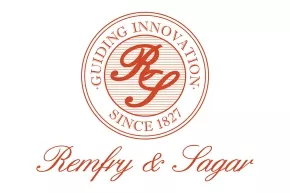- in India
- in India
- within Intellectual Property, Media, Telecoms, IT, Entertainment and International Law topic(s)
- with readers working within the Law Firm industries
Legislative amendments in 2003 eliminated the prohibition on patenting methods of 'treatment of plants'. Consequently, Section 3(h) cannot be construed to re-introduce this restriction.
In yet another decision, the Delhi High Court has underscored that methods of treatment of plants cannot be rejected under Section 3(h) of the Patents Act, 1970 which covers traditional methods of agriculture (Syngenta Crop Protection AG v. Assistant Controller of Patents (C.A.(COMM.IPD-PAT) 63/2024). Previously, the same proposition had been laid down in early 2024 in the Mitsui case (argued by Remfry & Sagar, read here,) and also propounded by the High Court of Calcutta in Decco Worldwide Post Harvest Holdings B.V. & Anr. v. The Controller of Patents and Designs & Anr. 2023 SCC OnLine Cal 1140 ('Decco judgement').
Syngenta (appellant) filed Indian patent application no. 202117035647 titled 'Methods of Controlling or Preventing Infestation of Rice Plants by Phytopathogenic Microorganism Gibberella Fujikuroi'. The application was rejected by the Indian Patent Office (IPO) on the grounds that the claimed subject matter attracts the proscription of Section 3(h) of the patent statute – this provision bars patenting of inventions relating to a method of agriculture or horticulture. An appeal was preferred that was allowed by the Delhi High Court and the matter was remanded to the IPO for de novo consideration.
The appellant sought to amend claims 1-10 and deleted claim 11, which, incidentally, formed the main basis of refusal under Section 3(h). It was asserted by the appellant that Section 3(h) had been incorrectly applied to a method of 'treatment of plants'. Prior to the year 2003, methods of 'treatment of plants' were excluded from patentability under Section 3(i). Thereafter, an amendment in 2003 was undertaken and such methods were recognized as constituting patentable subject matter. Reference was also drawn to the Manual of the Patent Office wherein the examples vis-à-vis Section 3(h) did not illustrate 'methods of treatment'. Additionally, it was contended that the definition of the term 'agriculture' varies across different statutes and, therefore, a universal definition cannot be accorded to the said term.
On the other hand, the counsel representing the Patent Office defended the impugned order and sought to contend that the term 'agriculture' ought to be given a broad and liberal meaning, for example, as per the definition contained in Black's Law Dictionary. Using such a yardstick, 'agriculture' would include prevention of diseases in plants and, the claimed methods, in essence, were traditional agricultural practices known to farmers. Thus, the impugned order passed by the Patent Office did not suffer from any infirmity and the refusal of grant of a patent was justified.
The court reviewed the amended claims and opined that the amendments sought to narrow down the scope of the claims further. Thus, the amendments were deemed allowable in view of the provisions of Sections 57 and 59 of the Patents Act governing the nature and types of permissible amendments. With respect to Section 3(h), the court agreed with the observations set forth in the Decco judgement and concluded that it could not have been "the intention of the legislature to remove the bar on patentability in respect of the method of 'treatment of plants' under Section 3(i) of the Patents Act and yet include the same within the purview of 3(h) of the Patents Act."
Accordingly, the recent decision on November 26, 2024 reinforces the extant position – methods of treatment of plants constitute eligible subject matter and are not barred from protection in light of Section 3(h) of the Patents Act.
The content of this article is intended to provide a general guide to the subject matter. Specialist advice should be sought about your specific circumstances.


